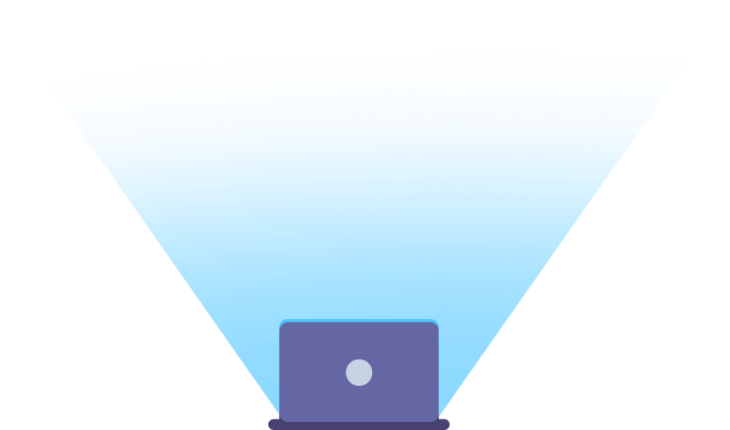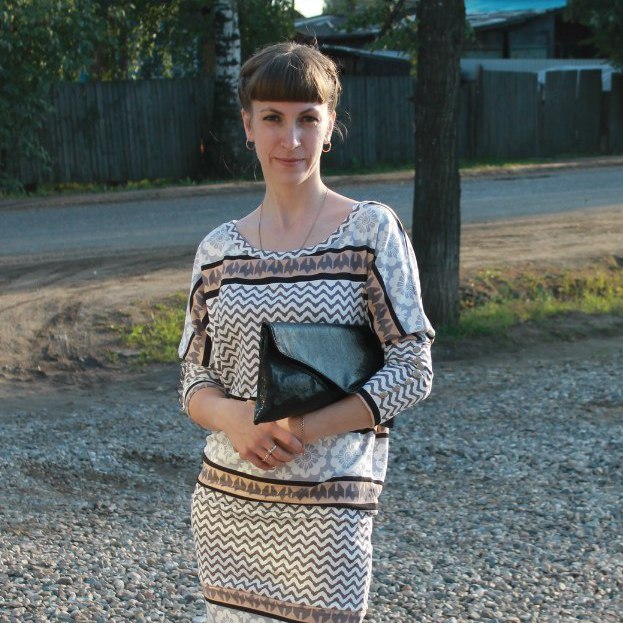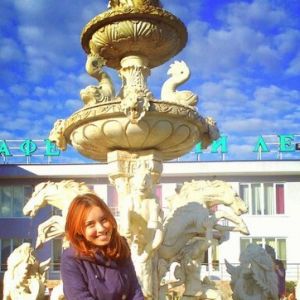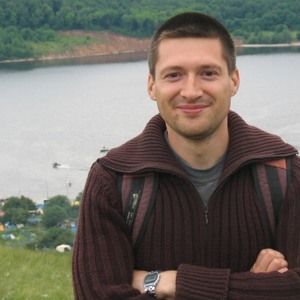






это быстро и бесплатно

Оформите заказ сейчас и получите скидку 100 руб.!
ID (номер) заказа
4229964
Ознакомительный фрагмент работы:
Freedom is the autonomy of social and political subjects (including the individual), expressed in their ability and possibility to make their own choices and act in accordance with their interests and goals.In the history of philosophical thought, freedom is traditionally seen in relation to necessity. Voluntarism absolutises free will, reducing it to the arbitrariness of the unconstrained individual, ignoring objective conditions and laws. Fatalism regards every human act as the inevitable realisation of primordial predestination, which precludes free choice.Human existence, according to existentialists, is an absolutely unique reality, to which no non-human yardstick of cause and effect relations applies, nothing external has power over Man; he is the cause of himself. That is why in existentialism man is free, for freedom is existence itself. Existence is the "dwelling place" of human freedom and therefore man is freedom and is condemned to be free. The basis of freedom in existentialism is that man is self-made and he is responsible for everything he does). At the same time, in the characterisation of human freedom by existentialism some peculiarities of its religious and atheistic orientations should be seen. So, for religious existentialists freedom can be found only in God. According to A. I. Shestov, for example, freedom is a cognized necessity (meaning God), it is necessary to know necessity and to reconcile with it, to give oneself to this necessity. This conception of freedom is linked to the recognition of necessity, which distinguishes it from, for example, Sartre's: to be free is to be oneself. Man has neither nature nor essence: he is freedom, not defined by anything. It is the unlimited force of negation -- neither good nor evil; neither moral nor immoral, but a pure choice. In this respect it is interesting to compare the Sartrean position with Hegel's idea of freedom as an affirmation of the self. In most cases, existentialism rejects the tradition of reducing freedom to a perceived necessity or to the manifestation of the natural order of the individual but insists that freedom is the condition and way of self-realisation of the individual. According to J.-P. Sartre, all men are free, since nothing can erase freedom from consciousness. Freedom, according to his views, is absolute; it exists in the form of action and activity.We can say that freedom in existentialist philosophy represents two indispensable conditions: -- the possibility of man's choice of the goal itself, or the freedom of his will;-- the possibility for man to attain the goal he sets, or the freedom of his action.Freedom in existentialism is conceived as a heavy burden to be borne by man because he is an individual and condemned to be free -- to be himself Of course man can renounce his freedom. But to renounce freedom is to renounce one's own person, which means to do and think as everyone else does and thinks. And the world into which man immerses himself, as Heidegger says, is a 'man', an essentially impersonal world where everything is anonymous, where everyone is isolated, averaged and made an object of action. It is a world where no one decides anything and therefore bears no responsibility for anything, Man in such a world has no one to rely on, for, according to Sartre, he is himself, as the world is itselfThe destruction of the objectified, impersonal world of 'man', according to existentialist philosophy, is real human communication, or existential communication - the breaking through of one individual to another, the coming together of people and understanding each other. For Camus, for example, authentic communication is the union of people in rebellion against an absurd world.However the world of "man" constantly aspires to destroy existential communication, to break the creative process.Thus for existentialist philosophy, there is no abstract human nature, no human essence independent or prior to existence. It is the life experience of each individual and concrete existence that is the initial reality for this philosophy. The theory of existentialism does not make an object out of man. It always starts from the personality of man as a subject of action. Thus existentialist philosophy emphasises the dignity and significance of the human personality, the absolute value of the individual, his genuine greatness and inalienable rights to spiritual freedom and dignified conditions of life.Existentialism cannot be regarded as a philosophy of inaction (quietism) Existentialism defines man through his actions, it shows that all the changes happening to him are the result not of external and mechanical influences, but of his vital and inner principles. Existentialist philosophy is optimistic, in spite of the pessimistic tone of some of its statements It is optimistic because it teaches that man does not become self-contained, isolated from others, but pursues a purpose outside himself. In this respect, it is existentialism that shows that man must find himself and make sure that nothing can save him from himself Existentialism thereby frees man from all hopes and illusions that he can become free due to something outside himself. It is existentialism that teaches that each person should make his individual, special contribution to the common creativity and creation of common life of people. Only then can the activities of all people become mutually complementary, creating a unified whole instead of repeating the same actions. "Freedom" is a concept that contains many sides and connotations. It is used to characterise different spheres of natural, social and spiritual existence. In physics, for example, freedom is used to describe the undetermined behaviour of subatomic particles. In economics, freedom is competition, diversity of ownership, free market, etc. In politics, it is pluralism of ideologies, diversity of political parties and movements, a democratic form of government, freedom of speech, etc. In art, freedom is the self-expression of the artist, creativity in general. In morality, the key word "freedom" also has different meanings, determining the ambiguous meaning and content of ethical concepts.The interpretation of the term "freedom" in ethics is of key importance in understanding the moral human being. In this interpretation, first of all, several essential points need to be clarified: (1) what kind of freedom are we talking about? (2) what is the meaning of this freedom? (3) what are the possibilities of freedom for the individual! The fact that man has freedom, that through freedom he becomes a moral person, raises the question of where this freedom comes from and what it means for the moral person. As Kant said, man is free, but this freedom is not only for good, but also for evil. Freedom is present in the human structure at different levels and in different forms: there is freedom in the manifestation of instincts, satisfaction of natural needs, there is also freedom in communication, choice of residence, friends, acquaintances, place of work, freedom can be in liberation from conformism, external social constraints, etc. And in this sense, we can accept the idea of existentialism: "a person is freedom" in so far as he/she has a possibility of choice. However, in morality the matter concerns not any freedom, but spiritual freedom, the essence of which is not in empirical (ontological) forms of freedom, but in the establishment of spiritual limits of any freedom (economic, social, political, individual), in the necessity of these limits as a measure of human in human deed. Everything has its own measure, its own boundaries, beyond which things lose their human meaning. Freedom without spiritual boundaries (moral principles and norms) turns into arbitrariness, an extremely aggressive form of amoralism in personal and social (especially in politics) life, dangerous in its unpredictability and false ecstasy of freedom.Freedom (as the essence of morality) in real, spiritual and practical life is fully embodied in moral choice, a conscious and free act of moral self-consciousness, which shows the depth of the individual's spiritual foundation. This choice of a person's goals, aspirations, actions is controllable (regulated), but this control is exercised in a special way, different from other types of social regulation, which makes morality a unique, irreplaceable and necessary (based on the essence of man) form of his being.Freedom, as a certain social condition of society, as a learned and mastered necessity, finds its most concentrated expression in the law, in which it is practically materialized, objectified, molded into concrete tangible forms, principles, and institutions. The nature of law in a given society, its development and completeness always allow us to judge the essence and breadth of the freedom that the state power legally recognises and permits.Law serves as an official measure of the existing freedom, its norm, an indication of the boundaries of the proper and the possible. At the same time, it is a guarantee of the exercise of this freedom, a means of safeguarding and protecting it. Acting as a legitimate (legal) scale of freedom, law objectively reflects the level of development of social reality achieved. In this sense, it is a measure of progress and therefore a measure of freedom as a product of development, as well as a measure of social responsibility.Hegel saw law as the realm of realised freedom, its real being. Freedom happens," he wrote, "where law, not arbitrariness, reigns. The Kantian provisions on law as a sphere of freedom are well known; he saw in ensuring the external autonomy of the individual the main aim and purpose of law. Perhaps only Leo Tolstoy, contrary to all odds, regarded law as violence against the individual.Legal norms are norms of freedom, but freedom that is legally recognized, expressed (formalized) by the state in the form of laws and other legal acts. Laws are "positive, clear, universal norms in which freedom takes on an impersonal, theoretical existence, independent of the arbitrariness of the individual. The code of laws is the Bible of freedom" (K. Marx). As we can see, the basic meaning of legal freedom is to protect the individual from external arbitrariness, both from the authorities and from the surrounding fellow citizens.This is the basic value and utility of law for the individual. In law, freedom receives the necessary support and guarantor, and the individual receives the opportunity to satisfy his interest. Without law, outside law, freedom could be an "empty sound", remain unrealised and unprotected. It is in this capacity that law is primarily necessary for the individual, not as an instrument of domination and coercion.Legal norms, as unified scales (benchmarks) of human activity, define the boundaries of people's actions, the measure, scope, volume of their possible and proper behaviour. It is through law, laws that the subjects of social relations - individual and collective - are placed under the jurisdiction of the state, which in the interests of society as a whole prohibits or permits certain actions, limits or expands the scope of personal desires and aspirations, grants rights, assigns duties, responsibility, encourages useful and suppresses harmful activities.Under current conditions, as Russia transitions to a market economy, the area of economic freedom, in particular, is expanding, which entails a corresponding expansion of the "legal field" for this. A number of laws are already in place to mediate these processes. This is the result of the overall democratisation of society. The principle "what is not prohibited by law is permitted" is being implemented.The Constitution of the Russian Federation proclaims: "Everyone has the right to freely use his abilities and property for entrepreneurial and other economic activities not prohibited by law" (Article 34). The Civil Code enshrines freedom of contract. In particular, it states that commercial organisations "may have civil rights and incur civil obligations necessary to carry out any activity not prohibited by law" (Article 49).Similar opportunities are offered by the Federal Law "On State Support for Small Business in the Russian Federation" of 14 June 1995 and other recent acts aimed at the development of domestic entrepreneurship. In general, entrepreneurship should not be permissive, but mainly declarative. Without this, there can be no civilised market. Market relations require above all economic and political freedom. And for this, legislation must be as liberal, flexible and democratic as possible.A free economy presupposes a free person and vice versa. A free economy is not a "savage" economy and a free person is not an anarchic person. In order to prevent them from becoming so, the regulating role of the state and law is precisely what is needed, for where law ends, arbitrariness begins.The level of political and personal freedom has increased substantially, providing room for a variety of positive activities for the individual. However, in the process of exercising this freedom, its negative aspects come to light as well, when, for a number of reasons, primarily due to the lack of a proper civic culture, freedom turns into permissiveness.This means that the legal framework of freedom must be sufficiently rigid and secure, which is not at all at odds with the principles of a true democracy. Law is an orderly, regulated form of freedom, freedom brought into a legal (legitimate) framework. Freedom outside the rule of law turns into anarchy, while democracy becomes a screen, a facade that covers the elements and ungovernability.Of course, in classical market relations, much is determined not by law but by the personal aspirations, will, and initiative of market subjects. But the general principles, initial positions and guidelines in this sphere are still set by the authorities and the law. Any civilised market is regulated in one way or another by legislation, which is designed to define its general concept, leaving at the same time a rather wide space for independent actions of the subjects.The main task of law is to prevent chaos and arbitrariness and ensure order. As P.I. Stuchka noted, jurists have long seen in the rules of law a means of differentiating interests, a kind of "boundary pillars", "milestones" that define the spheres of activity of individual persons and prevent them from clashing.N.M. Korkunov also saw the purpose of law in the separation and harmonisation of interests. He did not reduce law to a "punishing sword", but stated: "It is inconceivable that law would rely entirely and exclusively on coercion alone". In other words, law implies not only sanctions, but also permission, permissiveness, the possibility (within the law) of personal choice.It is clear that the ultimate (deepest) source of freedom and its essence are not in legal forms, which in themselves can neither explain nor exhaust freedom. N.A. Berdyaev wrote that law 'is only the minimum of human freedom'. But without legal forms and means in a state-organised society, freedom cannot be 'legally recognised', expressed, enshrined and 'distributed' for individual use. It is important not only to achieve a certain level of freedom, but also to dispose of it appropriately, to legislate it, to make it available to people, to put it in the service of society.Therefore, the problem of the political and legal expression of freedom, the improvement of its forms and methods of use is of fundamental importance for understanding the very essence of freedom and democracy. Legal freedom just "reveals" itself in such states of social life as law, legality, law and order, justice, law-making, law-enforcement activity, the system of rights and duties, their guarantees, legal culture, responsibility and so on [3].Under certain conditions, the freedom and rights of the individual may be restricted in the name of the common good. The Constitution of the Russian Federation states: "The rights and freedoms of man and citizen may be limited by federal law only to the extent necessary for the protection of the constitutional order, morality, health, rights and lawful interests of others, national defense and state security" (Part 3, Article 55).During a state of emergency "to ensure the safety of citizens and the protection of the constitutional order... Specific restrictions may be placed on rights and freedoms with an indication of their scope and duration" (art. 56, para. 1). The rights and freedoms set out in Articles 20, 21 and 23 shall not be subject to restriction. 20, 21, 23 (Part 1), 24, 28, 34 (Part 1), 40 (Part 1), 46-54 of the Constitution (Part 3, Article 56). These articles of the Russian Constitution refer to the right to life, honour, dignity, privacy, confidentiality of correspondence, freedom of conscience and other personal rights.The provisions of the Russian Constitution are fully consistent with generally accepted international standards, the practice of other states, and the Universal Declaration of Human Rights. These are rules for human coexistence that have been developed over the centuries.The law has diverse and multi-purpose functions. It both stimulates and restricts certain actions, encourages and prohibits them; it offers certain opportunities to subjects and obligates them to engage in appropriate (necessary, useful) conduct. Law "grants" and "takes away" freedom, guarantees and protects state interests, serves as a means of satisfying needs, applies sanctions for "disobedience", pardons and punishes, pursues a kind of "carrot and stick" policy, stands guard over peace and order. As early as Cicero wrote, the law is called upon to eradicate vices and promote good.The freedom of the individual is manifested in all spheres of life - social, economic, political and spiritual. But it is manifested and realised in different ways. This forms the structure of individual freedom, its facets and sides. Freedom is felt for real only when it is lost for some reason. In this case it becomes invaluable. Freedom is like air, which people do not notice while it is there, but immediately suffocate when it is gone.Of course, individual freedom also implies freedom from arbitrary power. The mediator between them is the law, which expresses the official measure of the independence of the individual, his "sovereignty", and also delineates the boundaries of the activity of this very power. It has long been said that the state must be ruled by law. The law is above any office, it "rules over all" (Aristotle). This is what is lacking in Russian society today.Laws are made only by elected bodies, directly representing the will of the people - the sole and absolute source of power. No monarch or president can make laws. That is why they have supremacy, the greatest legal force. Rulers, too, must obey the will thus expressed, i.e. the law. All are equal before the law.Law has long been revered as a storehouse of wisdom, the art of goodness and justice, and collective intelligence. "He who lives by the law harms no one," the ancient Romans said. The law is the embodiment of impartiality, objectivity. In practice, law embodies judgment. "The goddess of justice holds in one hand the scales on which she weighs the law, in the other hand the sword with which she defends it. The sword without the scales is naked violence, the scales without the sword are the powerlessness of law". The political dimension implies the following political freedoms: freedom of speech, freedom to elect and be elected, freedom to form political parties, etc. Political freedoms manifest themselves depending on economic freedoms, on the social status of the individual, on traditions and customs, on the general level of society, on the level of political culture of the people, as well as on specific historical conditions. The main characteristic of political freedom, in my opinion, is not simply the freedom of speech or the freedom to choose a candidate for public office, but the freedom of the individual to have a real impact on the political life of society.To sum up this brief analysis of freedom, perhaps the most important and difficult characteristic of freedom is that any attempt to define it theoretically would be incomplete and flawed in principle as it would be incommensurate with the infinite complexity of real life and the fan of possibilities it affords man. However when, in whose name and in what form is it to be determined, these questions are to be solved anew by each concrete man in each concrete personal and socio-political situation with no identical historical precedent and each individual free will. This means that we are condemned to an eternal debate about the nature and limits of true freedom, secretly not wishing or being able to put an end to it.
Сделайте индивидуальный заказ на нашем сервисе. Там эксперты помогают с учебой без посредников ![]() Разместите задание – сайт бесплатно отправит его исполнителя, и они предложат цены.
Разместите задание – сайт бесплатно отправит его исполнителя, и они предложат цены.
Цены ниже, чем в агентствах и у конкурентов
Вы работаете с экспертами напрямую. Поэтому стоимость работ приятно вас удивит
Бесплатные доработки и консультации
Исполнитель внесет нужные правки в работу по вашему требованию без доплат. Корректировки в максимально короткие сроки
Гарантируем возврат
Если работа вас не устроит – мы вернем 100% суммы заказа
Техподдержка 7 дней в неделю
Наши менеджеры всегда на связи и оперативно решат любую проблему
Строгий отбор экспертов
К работе допускаются только проверенные специалисты с высшим образованием. Проверяем диплом на оценки «хорошо» и «отлично»
Работы выполняют эксперты в своём деле. Они ценят свою репутацию, поэтому результат выполненной работы гарантирован ![]()









































Ежедневно эксперты готовы работать над 1000 заданиями. Контролируйте процесс написания работы в режиме онлайн ![]()
Бизнес модели на основе больших данных, анализ возможностей и вызовов для компаний
Курсовая, Инновационные бизнес модели глобальных компаний, менеджмент
Срок сдачи к 28 февр.
Валидационные логистические мероприятия: объекты холодовой цепи
Магистерская диссертация, Биотехнология
Срок сдачи к 23 февр.
ВКР Разработка автоматизированной системы управления вводом резерва для водного транспорта
Диплом, Тоэ, электрические машины, судовые автоматизированные электроэнергетические системы
Срок сдачи к 23 мар.
Регрессионный анализ (5 факторов) и экономическое обоснование для проекта по финансам (Казахстан)
Решение задач, International Trade Finance, английский язык
Срок сдачи к 23 февр.
выполнить задания из файлов 1) из первого файла(уч пособие) выполнить...
Решение задач, электроника
Срок сдачи к 1 мар.
Решить 5 задач
Решение задач, Тепоомассообменные процессы в защите окружающей среды, теплотехника
Срок сдачи к 25 мар.
Вкр на тему: «роль медицинской сестры в реабилитационных мероприятиях после травм нижних конечностей».
Диплом, Сестринское дело
Срок сдачи к 15 мар.
Заполните форму и узнайте цену на индивидуальную работу!






